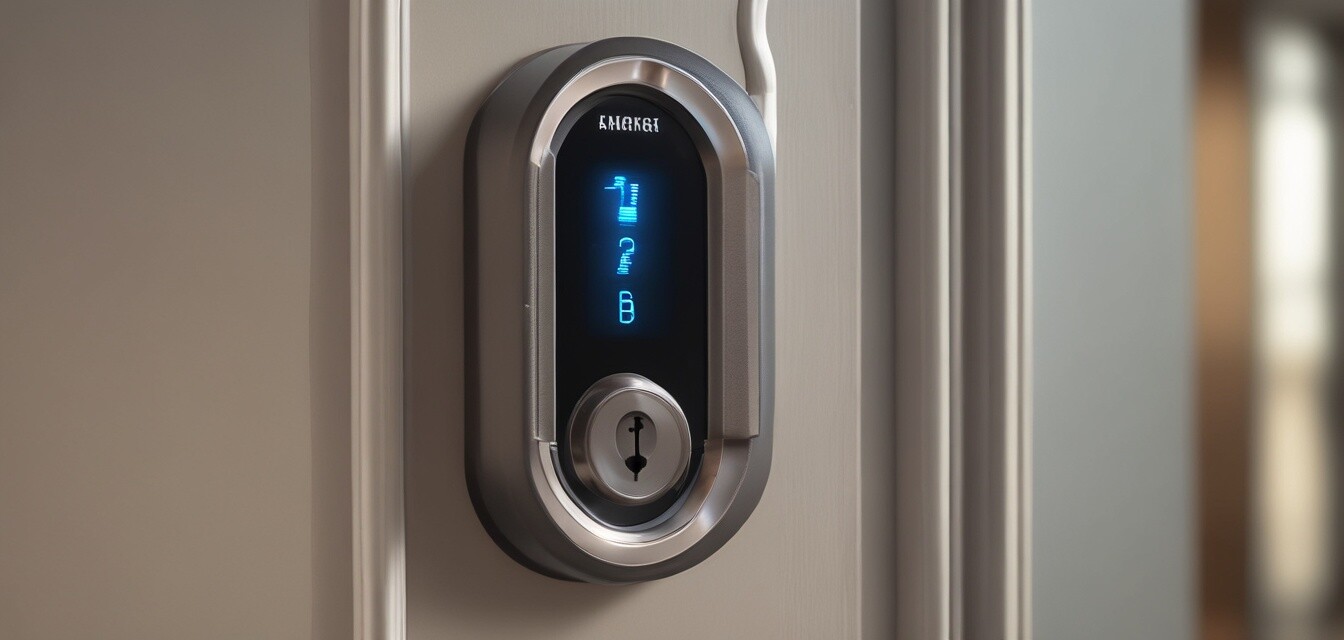
The Future of Smart Locks: What to Anticipate
Key Takeaways
- Technological advancements are enhancing smart lock security features.
- Integration with smart home systems is becoming increasingly common.
- AI and machine learning are set to revolutionize access control.
- Future smart locks will likely prioritize user convenience and enhanced security protocols.
- Privacy concerns regarding data collection are being addressed with new technologies.
Smart locks are transforming the way we think about home security. With ongoing advancements in technology, homeowners can look forward to a future where entrance security is not only more reliable but also more user-friendly. This article delves into the anticipated developments in smart lock technology and how they will reshape our security practices.
Understanding Smart Locks
Before exploring future advancements, let’s quickly recap what smart locks are. Smart locks are electronic locks that can be controlled remotely using mobile devices, allowing for greater flexibility in managing home access without traditional keys. They often include features such as:
- Remote locking/unlocking
- Temporary access codes
- Activity logs
- Integration with other smart home devices
Latest Trends in Smart Lock Technology
The evolution of smart lock technology follows several significant trends. The following table highlights key features that are currently redefining smart locks:
| Trend | Description | Benefits |
|---|---|---|
| Increased Security Features | Enhanced encryption methods and biometric unlocking. | Improved protection against unauthorized access. |
| AI and Machine Learning | Locks that learn user behavior for more intuitive access. | Adapts to patterns, potentially preventing security breaches. |
| Smart Home Integration | Seamless connectivity with home automation systems. | Convenience of managing multiple devices from one platform. |
| Data Privacy Measures | Improved protocols for handling user data. | Increased trust in security systems due to better privacy assurance. |
The Role of AI and Machine Learning
Artificial intelligence is anticipated to play a critical role in the development of smart locks. By learning user habits, smart locks can enhance their functionality. Imagine a lock that can automatically recognize your presence and unlock as you approach, or adjust access based on who is at the door. Here’s how these technologies could impact future smart locks:
- Facial Recognition: Integration of facial recognition technology will allow locks to identify family members, friends, or service providers.
- Predictive Access: Machine learning could enable locks to predict when you’ll arrive home and prepare to unlock accordingly.
- Behavioral Patterns: AI can identify unusual access attempts, enhancing security alerts.
Smart Home Integration
Smart locks are no longer standalone devices. Integration with other smart home systems is crucial for enhanced security and convenience. Here’s how these connections are expected to evolve:
- Home Automation Compatibility: Future locks will easily connect with existing home systems like lighting, cameras, and alarms.
- Voice Control: Integration with voice assistants will allow hands-free control for added convenience.
- Emergency Protocols: In case of an emergency, users can set locks to automatically unlock or send alerts to designated contacts.
Addressing Privacy Concerns
As the use of smart locks increases, so does the scrutiny regarding data privacy and security. Developers are responding by implementing robust security measures. Future trends include:
- Enhanced Encryption: Using complex algorithms for data security.
- User Control: Allowing users to manage what data is collected.
- Transparency: Providing clear privacy policies and protocols.
Conclusion
The future of smart locks promises exciting developments that combine enhanced security, convenience, and user satisfaction. Being informed about these upcoming trends can greatly assist homeowners in choosing the right technology to protect their homes. If you want to learn more about different types of home security solutions, check out our Home Security Buying Guides or our Solar-Powered Cameras for efficient surveillance options.
Pros
- Enhanced security protocols with AI features.
- Convenience through smart home integration.
- Remote access capabilities from any device.
- Customizable access for guests and family members.
Cons
- Dependence on technology that may fail or malfunction.
- Potential privacy concerns with data collection.
- Cost of initial investment in smart locks.
Stay Informed About Security Technology
To keep up with the fast-paced world of security technology, explore our blog on Latest Security Technology Trends, where we discuss all the developments that can affect how you protect your home.
